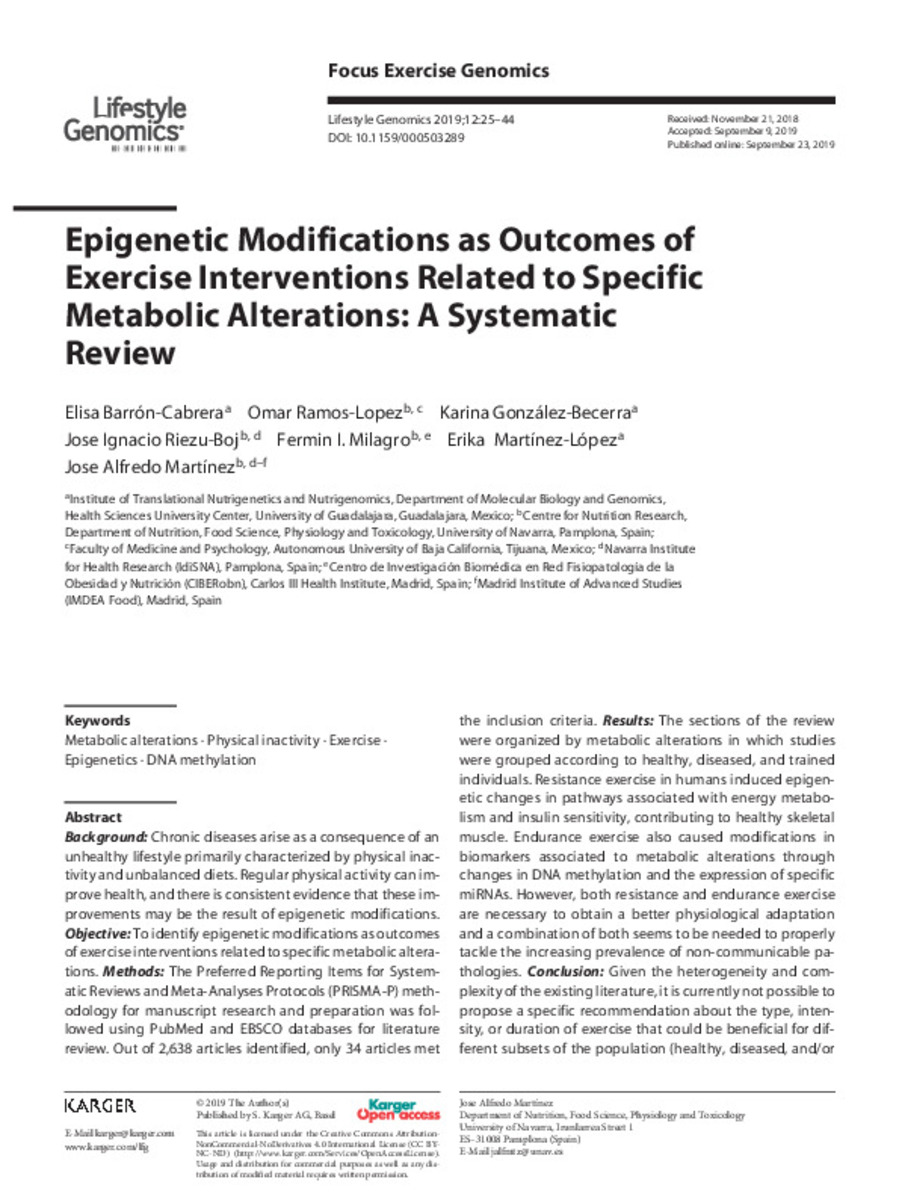Epigenetic modifications as outcomes of exercise interventions related to specific metabolic alterations: a systematic review
Palabras clave :
Metabolic alterations
Physical inactivity
Exercise
Epigenetics
DNA methylation
Fecha de publicación :
2019
Nota:
This article is licensed under the Creative Commons AttributionNonCommercial-NoDerivatives 4.0 International License (CC BYNC-ND)
Cita:
Barrón-Cabrera, E. (E.); Ramos-López, O. (Omar); González-Becerra, K. (K.); et al. "Epigenetic modifications as outcomes of exercise interventions related to specific metabolic alterations: a systematic review". Lifestyle Genomics. 12 (1-6), 2019, 25 - 44
Aparece en las colecciones:
Estadísticas e impacto
0 citas en

Los ítems de Dadun están protegidos por copyright, con todos los derechos reservados, a menos que se indique lo contrario.









